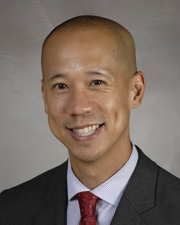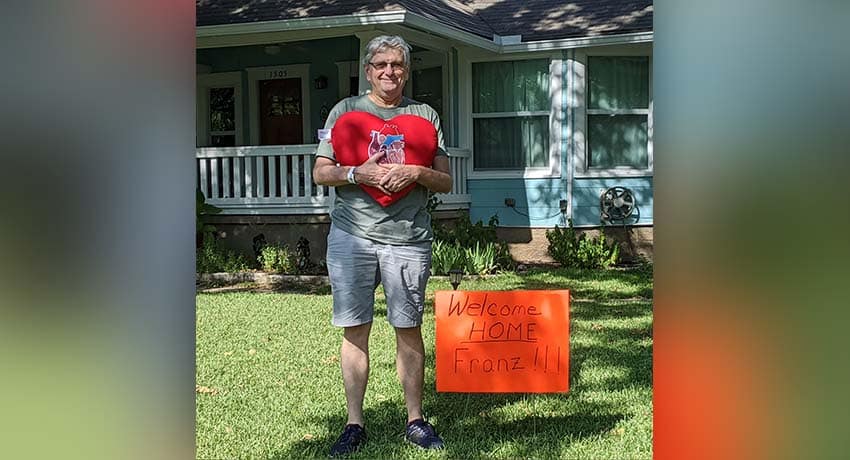With the help of telemedicine and advanced minimally invasive procedures, heart surgery and recovery has become more accessible and convenient than ever before, even to patients living far from medical facilities.
Just ask Franz Schubert of Georgetown, Texas, a community roughly 30 minutes north of Austin. In December 2019, Schubert was diagnosed with mitral valve regurgitation (MVR), a condition where the heart valve becomes weak or leaky, not allowing the blood to flow properly through the heart’s four chambers. The diagnosis came at the same time as recommendations for staying home due to the COVID-19 outbreak.
“I knew I wanted to get the problem fixed and was looking for a surgeon who could do it using a minimally invasive technique, so that my recovery would be faster and less painful,” he says. Schubert, a college professor of philosophy, researched surgical treatment options, but was unable to find someone in the central Texas region who could perform the mitral valve repair using minimally invasive techniques.
Searching for answers, finding help at UTHealth

A true education professional, Schubert continued his search, where he soon discovered the methods, successful outcomes, and published research by UT Physicians cardiothoracic surgeon, Tom C. Nguyen, MD.
“Most heart surgeons in the U.S. perform about five minimally invasive valve repair surgeries per year. Because we do roughly five per week, we’ve been able to perfect the technique, increasing and further improving the successful outcomes of our patients,” says Nguyen. Nguyen is the Director of Minimally Invasive Valve Surgery and Professor and Chief of Cardiac Surgery with the Department of Cardiothoracic and Vascular Surgery at McGovern Medical School at UTHealth.
As we enter into a new era of medicine where much of the care can be delivered electronically through telemedicine, Schubert was able to have all of his preoperative and all of his postoperative appointments from the comfort of his own home, 180 miles away from Nguyen’s office in Houston.
Following his telemedicine consultation to review the less invasive treatment option, Schubert says he knew this was the right procedure for him.
“I didn’t even meet Mr. Schubert until the day before his surgery, which shows how telemedicine offers the ability to provide a consultation with experienced physicians at large medical centers like the Texas Medical Center without compromising patient care.” says Nguyen.
Schubert came to Houston in July for his procedure at Memorial Hermann Heart & Vascular Institute at Memorial Hermann – Texas Medical Center. Minimally invasive MVR repairs typically require patients to stay in the hospital four to five days after surgery with essentially no physical restrictions when patient return home.
“I was back to taking 20-minute walks just a week after surgery,” says Schubert.
Most patients receiving MVR repair benefit from both telemedicine appointments and minimally invasive procedures.
“With telemedicine, patients don’t have to drive, park, wait, and interrupt their daily lives that often come with traditional doctor’s appointments. Additionally, the quick recovery period of a minimally invasive procedure allows patients to return to their normal daily activities,” says Nguyen.
Schubert says his cardiologist in Austin was impressed with how quickly he recovered.
“I believe it’s important to take care of a health condition sooner rather than later, and I would certainly try and opt for a less invasive option if it’s available,” Schubert suggests for anyone experiencing similar health concerns. “My telemedicine appointments were very simple, and I’m glad I didn’t have to drive and wait to see a doctor in the office if it isn’t necessary,” he says.



